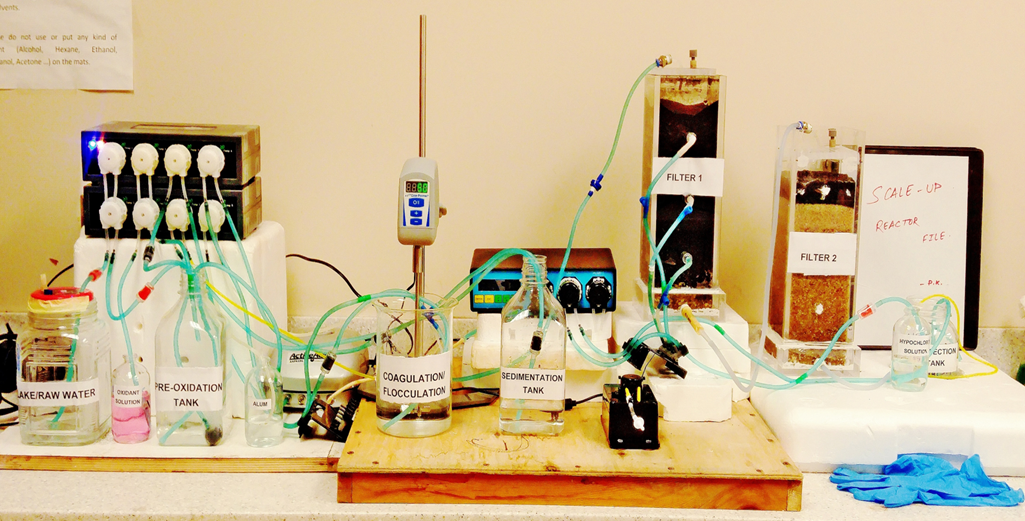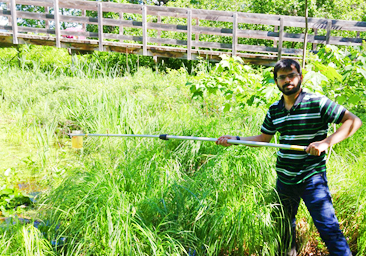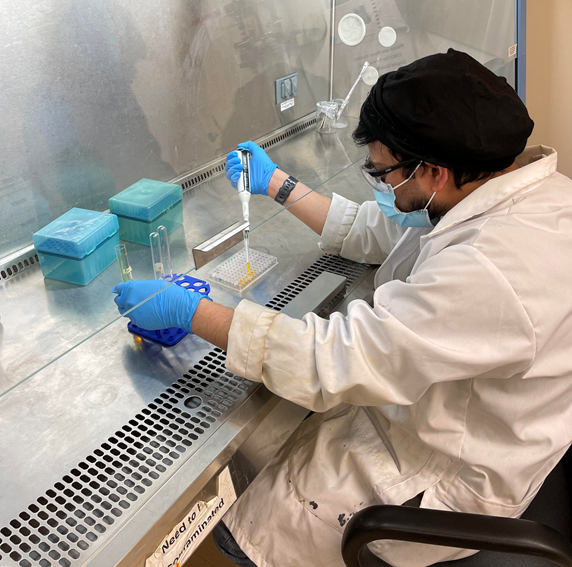Lassonde Postdoctoral Fellow Wins International Water Association Award
Tags:
Dr. Pratik Kumar, a postdoctoral fellow from Professor Satinder Kaur Brar’s lab in the Civil Engineering Department, has won the International Water Association Young Water Professionals Canada Award!
Dr. Kumar was recognized for his research focused on developing a biofilter capable of removing cyanotoxins from surface water sources. This research can be applied to drinking water sources in Canada, such as the Great Lakes and abroad. Cyanotoxins are produced by the commonly seen algae blooms that surround these water sources. These compounds are known to possess massive risks for drinking water, magnified by the difficulty of the removal of these toxins.

This issue is of particular importance for Ontarians since water from the Great Lakes is used to service over 8 million Canadians. Dr. Kumar’s mission was to develop a bench-scale solution that was both sustainable and economical. The result was a biofilter that used graphitized sand to reduce the concentration of these cyanotoxins to 0.61 µg/L, which is less than the critical concentration of 1 µg/L established by the World Health Organization (WHO). The choice of sand was of particular importance as Dr. Kumar recognized from the start that household users might not like the idea of using bacteria or biological compounds to treat their drinking water. In fact, the graphitized sand used in this work can be obtained through green methods by repurposing existing waste products. The work has been published in the Science of the Total Environment across two publications demonstrating the ability to use sand composites as filters for water contaminants and a prototyped unit.

Having conducted his PhD with Professor Brar and then his postdoctoral fellowship, Dr. Kumar always knew that he wanted to be an academic. He was recently appointed as a professor at the Indian Institute of Technology (IIT) Jammu, starting in April 2021, which he said was a dream come true.
“I studied at IIT and wanted the opportunity to go back there,” said Dr. Kumar. “I want to motivate young researchers and minds and help them believe that they can make a difference.”

Following the completion of his PhD, which coincided with the beginning of the pandemic, Dr. Kumar was concerned about how water professionals would be able to work together. That’s why he joined the IWA YWP chapter in Canada where he was involved in communications aiming to propagate water research and technology being developed within Canada. He wanted to create awareness about these technologies and influence their use across the world.
“Dr. Kumar was highly motivated and self-driven,” said Professor Brar. “He set a great example for the research group and was always keen to participate in projects with other students.”
Dr. Kumar’s work is far from done. After focusing on improving drinking water quality in Canada, he has shifted his focus abroad to India, where the need to remove toxins and other primary pollutants from water sources is greater with less than half the population having consistent access to safe drinking water. Dr. Kumar is currently working in India to have his biofilter technologies installed across households in India. Also, the research lab is targeting to conceptualize the modular treatment system in the field of wastewater engineering.
This article also appeared in YFile.